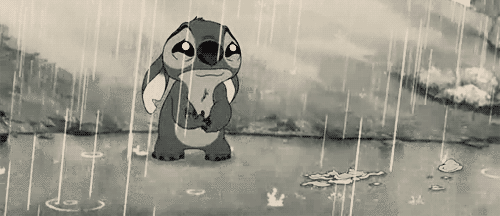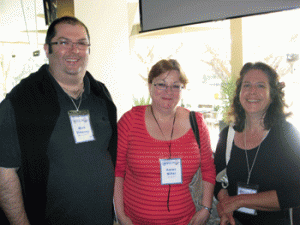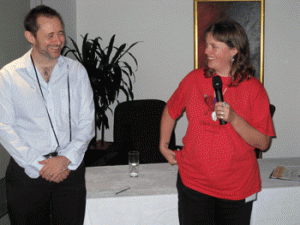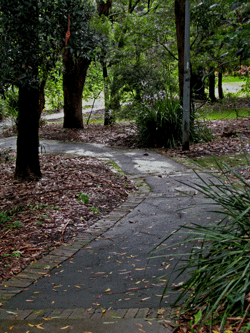Part B: How fanfic can help you write better
I first dipped my toe into reading fanfiction because I knew some authors I had worked with had started that way. It seemed like an area I needed to know more about if I was going to work with emerging writers; not only to offer advice, but also to recognise certain writing styles and habits typical to fanfic.
I admit to being apprehensive. I’d heard the comments, read the news stories – I expected to find utter rubbish. And it’s not all gold dust in them thar hills. But there’s less-than-perfect writing anywhere. The internet is full of barely readable blogs[i] and typo-ridden news articles.
I have come across works – novel-length pieces – that are better written and constructed than some published novels I have read. And these are pieces people have put together purely for the love of it – no hope or expectation of payment, or a publishing deal, or even (necessarily) readers[ii]. Some of the stories have taken months or years to write and perfect. Many of the best ones bear little resemblance to the original works on which they’re based. They might use the same characters and traits, but often key aspects are so substantially changed that even the world is different. Perhaps only the character names remain the same; a kind of shorthand so the reader – almost guaranteed to be a fan – knows at least what to expect from the personality of that character. These are well-written, well-crafted stories. Usually with a tonne of research and planning and thought, and even editing behind them.
There are a million writing guides out there explaining how to write, how to plan, how to research, how to self-edit. The information is overwhelming…

…and can be difficult to sift through for brand new writers who don’t have an established community of fellow writers.

Not everyone knows where to start or how to put esoteric writing advice into practice. Not everyone can make it to writers’ festivals, and not everyone is comfortable contacting known authors for advice – even though many are very friendly and happy to help.
The fanfic community can be a safe space to learn about the writing process, and these days the internet makes it easy. Far from being lazy, fanficcers have developed their own approaches to writing and “publishing”[iii] – most of which are identical to processes successful pro writers use, though couched in slightly different phrasing.
If you want to develop your writing skills, you could do worse than to emulate some fanficcers’ processes.
Five (fanfic) writing techniques
that will help make you a better storyteller
1. Meta and analysis.
This really leads into all the other points. Fanficcers are (obviously) based in fandom. They will analyse the canon work to within an inch of its life. And they will pull characters to pieces to understand their thoughts, feelings, motivations, backstory and relationships; figuring out how they would react in any given situation. They talk about these characters and their world among themselves – they can because, of course, these characters are shared. But the end result, when they write, tends to be a level of believability and depth that you can only get by knowing your characters and setting so well.
Outside fanfic, writers spend a lot of time arguing the merits of being a plotter or a pantser. In either case, if you know the background and impetus to your story and know it well, it’s going to be stronger on every other level than if you haven’t thought about it at all.
2. Knowing your characters.
This writing advice gets handed out constantly. Lots of authors recommend writing character sheets or “interviewing” your character to get to know them. If you’re writing fanfic, you have the advantage of an existing canon “template” to work from. In this case, the key is to learn how to convey the characteristics that readers will expect to see. Fanficcers have to make sure they get their portrayal right. They will study them until they know everything that makes them tick, so they can drop them in an unfamiliar (or canon-accurate) scenario and know exactly how they would react and why.
If you’re writing original fiction, the same rule applies. Only you don’t have a template to work from and you need to create this person (or bird, or potato) from scratch.
3. Consistent worldbuilding.
Very similar to the above. Fanfiction allows you to work with a template for an existing world. It means you have to develop the skills to portray things correctly, as the reader expects. Or you have to justify any differences if you diverge from canon.
Again, for fanfiction you need to know your world backwards. To write original fiction well you need the same skills and techniques to convince your readers this place is real.
4. Alpha and beta readers.[iv]
Most successful published authors have their own team of readers who critique their manuscript, although there are professional writers who hand in their first draft to the publisher without any eyes but their own ever having been cast over it.
Fanficcers don’t have a professional publishing house at their service (usually!) so they’ve worked out their own ways to develop and polish their work. Many of them put their fics through rigorous testing before it goes online. They have readers check that the story and characters hang together, that everything is as strong as it needs to be. And they may put it through its editing paces for spelling and grammar as well. These readers are usually fellow writers, or sometimes just readers passionate about the genre or topic.
This is a great system for polishing original work, too. Putting a manuscript through its paces before submitting to agents and publishers, or even before hiring your own editor, can result in a much tighter and more developed story.
5. Brit pickers, science pickers etc.
A step deeper than fact checking, although this is basically what this is. Many fanficcers are writing in a world or culture that is not their native one; for example, they might be Americans writing characters and stories set in the UK or vice versa. Or they might be writing a story about a scientist, or an artist, or a bird, or anything at all. They research heavily before they start writing, but then they get an expert to check through and ensure the language and tone is correct, not just basic facts.
In both fanfic and original fiction the slightest (unexplained) off-note will throw a reader out of the story. It can be invaluable to get someone who knows to look things over for you. You can’t always rely on an editor or proofreader to pick up these details.
***
Of course, none of these methods are exclusive to fanfic; many professional writers use the same or similar processes and more besides. But if you’ve never put much thought into planning your story, or considered why such research or planning might be necessary, some of these techniques – and the reasons behind them – might help you explore and develop your own work in new and interesting ways.
[ii] Although, realistically, no one enjoys writing into the void. Even if they’re not looking for fame.
[iv] Fun fact! I got someone to beta read this post and the one previous. Thank you, Fabulous Colleague. You know who you are.
[subscribe2]













